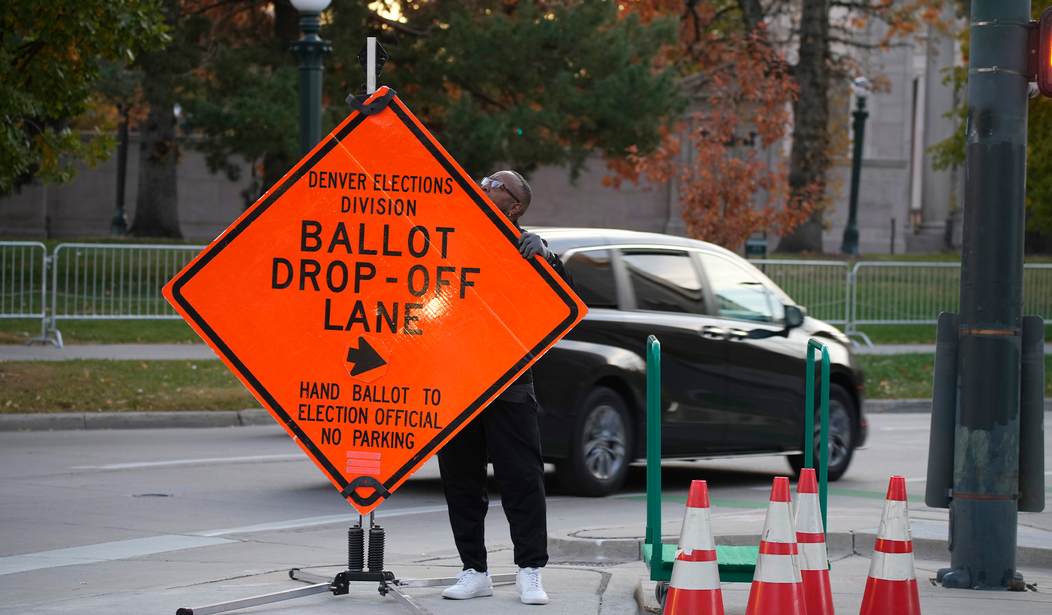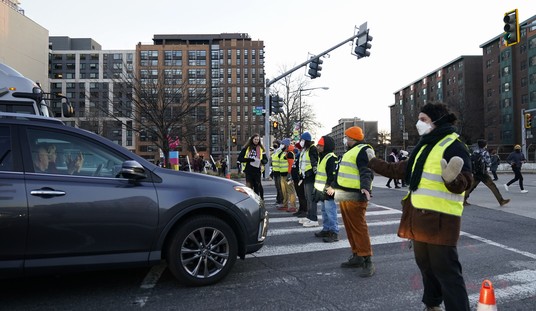Last week, Ohio announced it is leaving the Electronic Registration Information Center (ERIC). Until recently, ERIC was mostly unknown except to a small group of people in election administration. ERIC is a member organization of states, designed to encourage voter registration and also help maintain clean voter rolls.
A small number of states recently left the consortium over disagreements over a variety of things. I’ll get to that in a moment.
First, how does ERIC work?
ERIC aggregates state voter roll data. Voter rolls are public documents, and anyone can obtain them if they know the right questions to ask.
After ERIC aggregates voter roll and driver’s license data, ERIC flags individuals registered in multiple states and deceased registrants on states’ voter roll. Once ERIC finds either, they send the information back to client states to conduct list maintenance. It is up to the states how well or how poorly they use this tool.
One of the unfortunate parts of state leaving ERIC is that voter rolls nationwide will be less clean the fewer the number of states who contribute to the data. The more states that are in ERIC, the more comprehensive the data set is to find, for example, registrants who are active in multiple states at the same time.
Ohio’s announcement to leave ERIC follows Florida, West Virginia, Missouri, Alabama, and Louisiana’s recent withdrawal from the organization.
You’re probably asking, if ERIC is so vital to voter list maintenance then why are six of thirty-one states leaving?
Much of the distrust around ERIC comes from the organization’s lack of transparency. Concealment is written into the ERIC bylaws. States are expressly forbidden from disclosing the ERIC documents that ERIC sends to states. This includes reports on deceased and duplicate registrants.
Federal law makes the ERIC agreement that conceals election records illegal. That will be litigated in court.
Under the National Voter Registration Act (NVRA), voter list maintenance documents are public records. The public has a right to inspect records relating to maintaining voter rolls — whether cleaning or adding to the rolls.
Congress made the right call when it made all list maintenance records public. It allows the people to hold election officials accountable if they fail to do their job.
Effective list maintenance cannot occur in darkness. ERIC’s wall of secrecy is leading to distrust in the organization — which is being funded by the taxpayers of member states.
If ERIC does not knock down its wall of secrecy, it might continue to lose states.
Some cheer on each state’s exit. That’s too bad. ERIC isn’t going away anytime soon, and it remains the only tool for states to clean cross-state duplicates.
Someone will replace ERIC! So say the exit advocates.
Ok, who?
What organization, today, can replace ERIC in Alabama? There is none. Remember that 2023 is the only year before the next federal election with a clean calendar to do effective list maintenance. Nothing will be stood up fast enough to complete the job before a cascading series of statutory freeze-outs that block effective list maintenance in 2024.
What’s that about, you ask? List maintenance cannot be conducted within 90 days before any federal election. With presidential primaries, regular primaries, and the 2024 general spaced throughout the 2024 calendar year, that leaves few effective time periods for list maintenance.
Again, how is cross-state duplication maintenance occurring now, in 2023, in the states that left ERIC? Who can do it?
Bueller? Bueller??
And please don’t suggest that some conservative organization can do it for the states. The appearance of impartiality is important, almost as important as having actual competence in the space. Further complicating the problem is that no private group has access complete PII (personally identifying information) from the voter file of some states, which is so essential for doing competent analysis.
Efforts to detect cross-state matches that I am most familiar with spent enormous amounts of time and money to backfill PII into the voter file with commercial information. That personally identifying information is already available to the states and to ERIC from their own data. 2021 saw plenty of inflated conclusions about voting issues because the analysts did not have access to full dates of birth or other PII. We don’t want a costly embarrassing repeat.
The part some hate the most about ERIC is the requirement to send a postcard to everyone who has a driver’s license but is not registered to vote. It requires a state to encourage voter registration. No doubt, this is a burdensome and costly requirement. In fact, Ohio Secretary of State, Frank LaRose, in his letter resigning from ERIC stated this as one of his reasons for withdrawing.
The requirement also happened to be part of the deal when a state joined ERIC in the first place. So it shouldn’t surprise anyone from a state election office that joined ERIC.
It’s like walking into a Pizza Hut and getting angry that Bar-B-Que isn’t on the menu. Did you see the shape of the roof before you decided to come inside??
Some make the understandable argument that states shouldn’t be in the business of encouraging voter registration. I get that. But Congress had a different goal when it passed the National Voter Registration Act in 1993, and that was to increase registration.
Progressives have long thought that more widespread voter registration means more progressive victories.
I don’t buy it. America remains a center-right nation. The largest unregistered demographic is white males lacking a college or high school diploma and who are employed full-time. I have some insight into how those folks poll. If they all registered and voted, we’d have more Trumps than Obamas.
Maybe we should check our premises about what high rates of voter registration would mean.
While ERIC has its problems, it right now provides an important service to states who are still members to cross-check people registered in multiple states. This is a good thing. It allows states to catch people who are voting twice. For instance, might have a winter home in South Carolina and another residence in Michigan. ERIC allows South Carolina and Michigan to catch election crimes.
If you care about voter fraud, we should care more about fixing ERIC than burning it down.









Join the conversation as a VIP Member